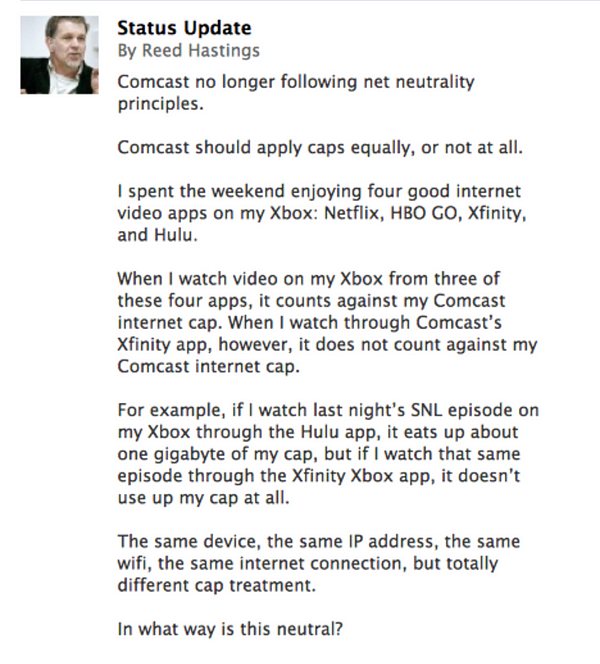BY MATT LOPEZ
At Recode’s Code Conference this week, Netlix CEO Reed Hastings all but threw in the towel against the fight for net neutrality. Netflix, which has extended its reach across 190 countries, has been a vocal proponent of net neutrality rules in the past, but Hastings believes it’s not their fight anymore.
“We’re big enough to get the deals we want,” he said at the conference.
Why is net neutrality so important? Well, it makes sure internet providers enable access to all content and applications regardless of the source, and without favoring or blocking particular products or websites. One concern for the loss of net neutrality is the idea that smaller players wouldn’t be able to compete against larger companies that can afford to pay for priority access. An issue that would have been a bigger concern for “the Netflix of 10 years ago,” Hastings said.
“I think Trump’s FCC is going to unwind the rules no matter what happens,” Hastings stated. He also expressed blind optimism that internet providers would continue to play fair, even if the regulations were canned.
This isn’t the first time Hasting has expressed these opinions. In mid March, the Verge reported that while speaking to a group of journalists at Netflix’s headquarters in Los Gatos, California, Hastings said he believes “the culture around net neutrality is very strong. The expectations of consumers are very strong. So even if the formal framework gets weakened,” he continued, “we don’t see a big risk actualizing, because consumers know they’re entitled to getting all of the web services.”
This is a very different hasting from even five years ago, who called out Comcast in 2012 for not following the net neutrality guidelines. It seems that the change of heart could be due to the fact that Netflix is now one of the largest drivers of video traffic on the internet.

Let’s hope that Netflix’s lack of support doesn’t start a trend of care-free attitudes toward net neutrality from entertainment giants. If net neutrality is ended, good luck to all the startup streaming companies with services that may be throttled, capped, or blocked by internet providers that offer similar services like AT&T or Verizon.


